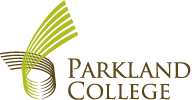About Power Engineering Technician (fourth Class) in Parkland College (Yorkton)
Why Parkland College?
“The benefits of having a power engineering program run locally through Parkland College can be measured in money and time but what cannot be quantified is the opportunity to go home after class.
The advantage for a company like Louis Dreyfus Commodities, who participates in the work placement program, is to have first look at the students as potential employees. The last power engineer we hired learned his trade at Parkland College, and he is now training to obtain his Second Class license.”
-Henry Bouchard
Former Chief Engineer, Louis Dreyfus Commodities, Yorkton
Gain Industry Experience
Saskatchewan Polytechnic’s Power Engineering Technician program will give you the tools and knowledge you need to start out in this complex and exciting field. Power Engineers keep the heat on in winter and the lights on at night. They operate hospital fridges, industrial coolers, all types of boilers, compressors, generators, motors and more.
At Parkland College’s Trades and Technology Centre you’ll learn the basics of power generation with practical training in boiler operations, electrical controls and instrumentation, maintenance and tool use. You’ll develop troubleshooting skills in practical labs, get boiler firing time in the power lab, and industry work experience in your second term.
Although power engineering isn’t classified as a trade, it is government regulated and certified by the province where you live and work. It is divided into four levels of skills and training (First Class is the highest). A combination of work experience and course completions followed by rigorous interprovincial examinations allows an engineer to progress from one class to another.
You will study Fourth Class interprovincial standardized material as preparation to challenge the interprovincial Fourth Class Examinations.
Graduates are eligible to challenge the provincial exam to obtain the Refrigeration Engineering Certificate required to operate large refrigeration plants in Saskatchewan. Graduates may go straight into the workforce or enroll in Third Class Power Engineering.
Career Opportunities
Graduates are prepared to work as power engineers or process operators in a variety of industrial and heating plants. These include utility (power) plants, refineries, hospitals, pulp and paper mills, breweries, mines, gas processing plants, heavy oil upgraders, fertilizer plants or chemical plants.
Academic qualification equivalents:
- Generally requires you to have completed a secondary school qualification equivalent to an Australian Year 12 certificate.
English language requirements (one of the below):
- IELTS : minimum 6.5 with no bands less than 5.5.
- TOEFL : 86
- PTE : 60
Parkland College Highlights
| Type of College |
Public |
| Year of Establishment |
1973 |
| Campus Setting |
Urban |
| Total Enrollment |
2400 |
| Full-time Students |
More than 700 |
| Part-time Students |
More than 1600 |
| Application Fee (International Students) |
$140 |
| Tuition Fee (International student) |
$15,500-$22,000 |
| Financial Aid |
Available |
| Student-Housing |
Assisted Off Campus Housing |
| Language of Instruction |
English |
| Intake Season |
August or September |
| Test Scores Accepted |
IELTS,TOEFL |
| Scores Requirement |
IELTS-6.5,TOEFL-80 |
Parkland College Cost of Attendance
International students who meet the entrance requirements will be sent an offer letter. Students will need to deposit a 50 percent program fee to secure a seat in the program and also to receive a letter of acceptance. One you have received the letter of acceptance and have been enrolled for the program, the remaining fee can be paid on or before the commencement date of the program. The tuition fee for the programs offered by Parkland College are tabulated below:
| Business Certificate Programs |
Dates |
Tuition, Books and Fee |
| Business Certificate Year I |
August 2020 - May 2021 |
$15,500 |
| Business Certificate Year II |
August 2020 - May 2021 |
$16,500 |
| Office Administration Certificate |
August 2020 - May 2021 |
$15,500 |
| Post-Graduate Certificate Programs |
Dates |
Tuition, Books and Fee |
| Global Business Management Post Grad Certificate |
August 2020 - May 2021 |
$18,000 |
| Health Certificate Programs |
Dates |
Tuition, Books and Fee |
| Continuing Care Assistant Certificate |
August 2020-2021 |
$16,000 |
| Trades Certificate Programs |
Dates |
Tuition, Books and Fee |
| Agricultural Equipment Technician Certificate |
August 2020 - May 2021 |
$24,500 |
| Automotive Service Technician Certificate |
August 2020 - May 2021 |
$21,500 |
| Heavy Equipment Truck & Transport Technician |
August 2020 - May 2021 |
$22,000 |
| Power Engineering Technician |
August 2020 - May 2021 |
$20,000 |
Parkland College English Proficiency Test Score for International Students
International students applying for any of the undergraduate programs must submit the results of English language proficiency tests. The minimum requirement for this test score is:
| Exam |
Minimum Requirement |
| IELTS |
6.5, no band less than 5.5 |
| TOEFL-IBT |
88 |
| CAEL |
70, no band less than 60 |
| PTE |
58 |
| CELT |
Band 6 |
